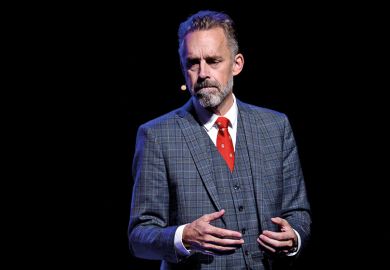The University of Toronto has agreed to review allegations that it rescinded a job offer in human rights legal work after a wealthy donor raised objections over the chosen candidate’s criticisms of Israel.
University leaders, after weeks of pressure, also said they would let the scholar, Valentina Azarova, stand as a candidate in a new effort to fill the non-academic position of director of the International Human Rights Programme in the Faculty of Law.
They rejected, however, any suggestion of interference in academic freedom or other impropriety.
“Assertions that outside influence affected the outcome of that search are untrue and objectionable,” the dean of law at Toronto, Edward Iacobucci, told his faculty in an email. “University leadership and I would never allow outside pressure to be a factor in a hiring decision.”
The controversy came into public view over the past month as law faculty resigned from the International Human Rights Programme’s advisory board to protest at the failure to hire Dr Azarova, the unanimous choice of their hiring committee.
Media reports, including email exchanges, have suggested that Dr Azarova was given a verbal offer, and was making plans to move to Toronto from her post as a visiting lecturer at Bard College Berlin, when the opportunity was pulled back.
Reports attributed the reversal to private complaints to campus leaders from David Spiro, a member of the Tax Court of Canada, whose extended family has donated millions of dollars to the university. A pro-Israel activist, Mr Spiro was reportedly motivated by Dr Azarova’s academic work concerning Israel’s occupation of the Palestinian territories.
Numerous legal scholars and other organisations, including Amnesty International and Human Rights Watch, demanded the university explain the situation.
“There’s evidence to suggest that the university bowed to that outside political pressure,” said David Robinson, executive director of the Canadian Association of University Teachers. “And that’s absolutely inappropriate and a violation of academic freedom.”
Professor Iacobucci said that Toronto’s review of the matter would be led by Bonnie Patterson, a former president of Trent University, and be completed by mid-January.
The review will be “non-disciplinary” and will be presented to the university’s head of human resources, with a version made public, a university spokesman said.
The human resources director, Kelly Hannah-Moffat, a professor of sociology, issued her own statement saying that reports on the matter so far have involved “insinuations and the selective disclosure of information”, and that the university backs Professor Iacobucci’s position “that no offer of employment was made, nor accepted or rescinded”.
Professor Iacobucci, in his statement, said that conversations with the candidate “had been ongoing” and were incomplete, because legal limits on cross-border hiring left the candidate unable to “meet the faculty’s timing needs”.
Then, he said, “the opportunity to consider other candidates in a timely way was derailed by this unnecessary controversy, and the search was cancelled”.
“All candidates, including candidates in the recent search, are more than welcome to apply when the search resumes,” Professor Iacobucci said.
Mr Robinson argued that the university should offer Dr Azarova the job and commission a fully independent investigation of what took place.
The case was reminiscent, Mr Robinson said, of a situation about 20 years ago when British psychiatrist David Healy sued Toronto for withdrawing a job offer after he criticised antidepressant drugs made by a major pharmaceutical company that partnered with the university. Dr Healy settled that case for an undisclosed amount.
Register to continue
Why register?
- Registration is free and only takes a moment
- Once registered, you can read 3 articles a month
- Sign up for our newsletter
Subscribe
Or subscribe for unlimited access to:
- Unlimited access to news, views, insights & reviews
- Digital editions
- Digital access to THE’s university and college rankings analysis
Already registered or a current subscriber?








